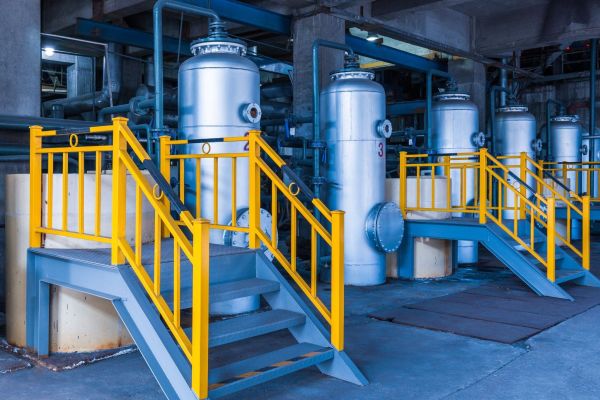Blog
Benefits of Industrial Water Treatment Plants & How They Work

Industrial water treatment plants play a crucial role in maintaining the sustainability of our environment and ensuring a steady supply of clean and safe water for various industrial processes. In this article, we will explore the benefits of these treatment plants and how they operate to provide a better understanding of their significance in today's world.
Role of Water Treatment Plants
Ensuring Water Purity
Industrial water treatment plants are instrumental in purifying water by removing contaminants, sediments, and impurities. These plants ensure the water meets stringent quality standards, making it safe for various industrial applications. By employing advanced filtration techniques, they effectively eliminate harmful substances.
Efficient Resource Utilization
Water is a finite resource, and it's essential to use it efficiently. Industrial water treatment plants enable industries to recycle and reuse water, reducing the demand for freshwater sources. This not only conserves water but also helps in cost reduction for companies.
Compliance with Regulations
Strict environmental regulations require industries to treat their wastewater before releasing it into the environment. Industrial water treatment plants ensure that industries adhere to these regulations, helping to minimize the environmental impact of their operations.
Cost Savings
By treating water in-house, industries can significantly reduce the costs of purchasing freshwater and disposing of wastewater. Water treatment plants are an investment that leads to long-term savings, making them a wise financial choice for businesses.
How Industrial Water Treatment Plants Work?

Industrial water treatment plants employ various processes to purify and treat water. Understanding these processes is essential to appreciate the significance of these facilities fully.
Coagulation and Flocculation
The water treatment process begins with coagulation and flocculation, where chemicals are added to water to form small, sticky particles called floc. These flocs attract and bind together impurities in the water, making them easier to remove.
Sedimentation
After coagulation and flocculation, the water is left to settle in a tank, allowing the flocs to sink to the bottom. This step separates the impurities from the water, creating clearer water ready for further treatment.
Filtration
The next stage involves passing the water through various filters, such as sand or activated carbon filters. These filters trap the remaining particles, ensuring the water becomes as pure as possible.
Disinfection
Disinfection is a crucial step in destroying any remaining harmful microorganisms. Standard methods include chlorination or ultraviolet (UV) light to ensure the water is safe for industrial use.
pH Adjustment Maintaining the proper pH level is essential to prevent corrosion in industrial equipment. Water treatment plants adjust the pH to ensure it falls within the desired range for the intended industrial processes.
Reverse Osmosis
For industries requiring extremely pure water, reverse osmosis is employed. This process uses a semi-permeable membrane to remove nearly all impurities, producing high-quality water.
Chemical Treatment
Some industrial processes may require specific chemical treatments to remove particular contaminants. Water treatment plants can customize their approach to meet these specific needs.
To Sum Up
Industrial water treatment plants are indispensable for various industries, helping to ensure the availability of clean and safe water while safeguarding the environment. When it comes to industrial water treatment solutions, General International Group is your reliable partner. Committed to customized, cutting-edge, and environmentally responsible services, we are your one-stop solution for all your water treatment needs. Contact us today to discover how we can help your industry thrive while contributing to a more sustainable future.